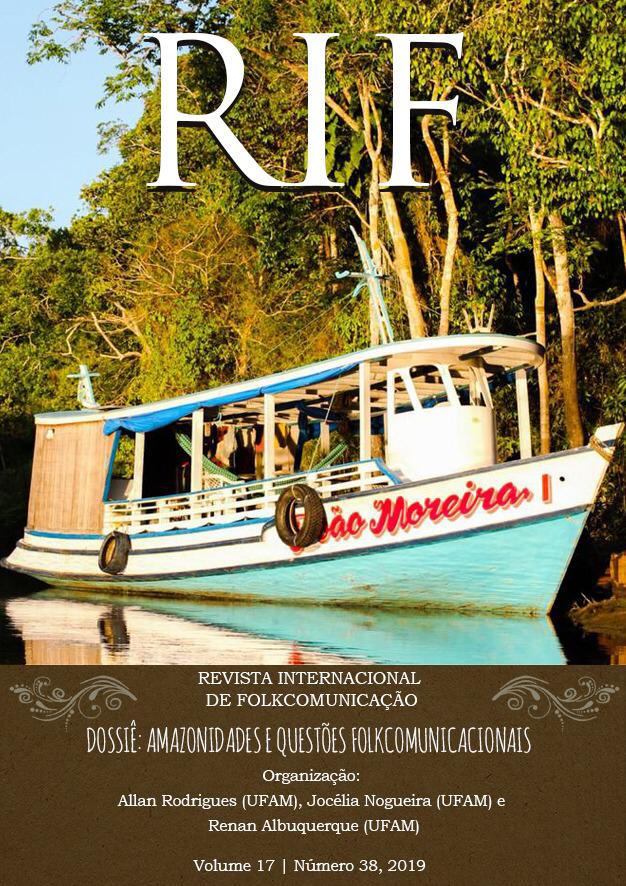Digital folkcommunication and consumerist practices of the tanajura in Tianguá (CE)
DOI:
https://doi.org/10.5212/RIF.v.17.i38.0011Abstract
The research aims to analyze food practices influenced by folk communication studies in contemporary times. Starting from the premise that food is part of human life and the practices that involve this technology-mediated theme have been reconfigured, speeches promoted in digital media bring the reflection of cultural diversity in societies. The study analyzes how the people from the city of Tianguá-Ceará have used the digital media to share their cultural practices in the consumption of tanajura (a type of ant) revealing the ethos of their people in symbolic productions that emphasize the culture and its traditions in a feelingof belonging. Digital social networks have enabled a space of expression and circulation of messages promoting a visibility in the representation of historically marginalized groups. Folkcommunication, Culture, Social digital networks, Tanajura.
Downloads
Downloads
Published
How to Cite
Issue
Section
License

Este obra está licenciado com uma Licença Creative Commons Atribuição 4.0 Internacional.
Os autores são responsáveis, em qualquer que seja o formato do texto, pelas opiniões expressas ou indiretas presentes em seus respectivos trabalhos, não endossáveis pelo Conselho Editorial e pelos editores da Revista, bem como pela autenticidade do trabalho. Ao publicar trabalhos na Revista Internacional de Folkcomunicação, os autores cedem automaticamente os direitos autorais à publicação para veiculação das produções acadêmicas, sem ônus para a Revista. Os autores detêm os direitos autorais do texto para o caso de publicações posteriores e concedem à Revista Internacional de Folkcomunicação o direito de primeira publicação, com o trabalho simultaneamente licenciado sob a Creative Commons Attribution License, que permite o compartilhamento do trabalho com reconhecimento da autoria e publicação inicial nesta Revista. Por serem publicados em revista de acesso livre, os artigos são de uso gratuito, com atribuições próprias, em atividades educacionais e não-comerciais, sendo permitida a publicação simultânea em repositórios institucionais.































